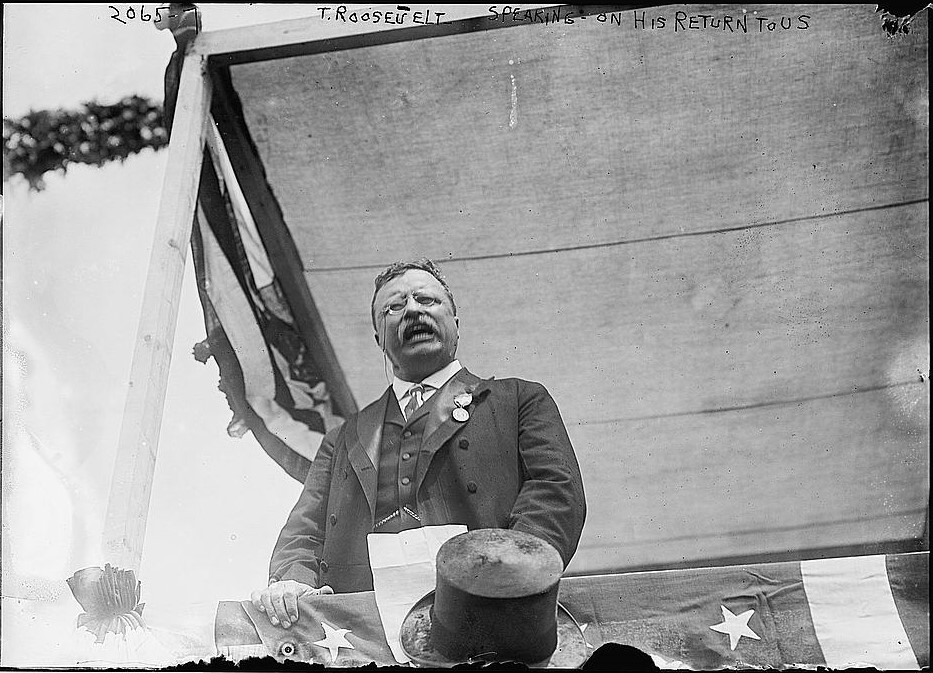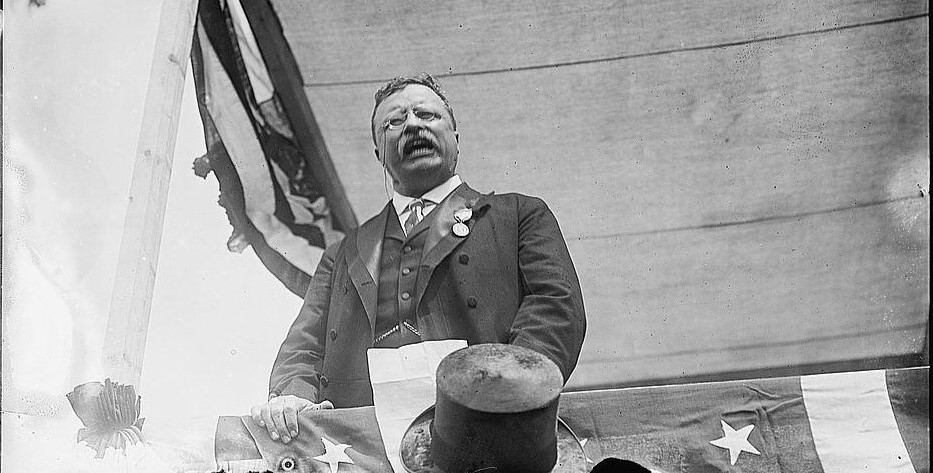Authors:
Historic Era: Era 9: Postwar United States (1945 to early 1970s)
Historic Theme:
Subject:
November/December 2022 | Volume 68, Issue 6


Authors:
Historic Era: Era 9: Postwar United States (1945 to early 1970s)
Historic Theme:
Subject:
November/December 2022 | Volume 68, Issue 6

It is uncommon for American presidents to have their post-presidency pronouncements remembered. Yet the most oft-quoted words spoken by Theodore Roosevelt come from a speech he gave after he left office. In 1910, after completing a safari in Africa, Roosevelt had been invited to speak at the Sorbonne. The speech included a passage that has been quoted and cited widely in the century that followed.
This has become known as the Man in the Arena passage. Less commonly known is the title of the speech from which it is taken, which is “Citizenship in a Republic.” One of the key themes of Roosevelt’s speech was that modern republics like France and the United States require a different sort of citizenry than the types found in countries with authoritarian systems. Republics, by contrast, need a more active, determined people: “The good citizen in a republic,” Roosevelt declaimed,” “must first of all be able to hold his own. He is no good citizen, unless he has the ability which will make him work hard and which at need will make him fight hard.”
Roosevelt’s conception of the active life entailed more than strenuous effort. It also involves a capacity for productive struggle and competition in which risks have to be faced and accepted. To pursue victory is to accept the possibility of defeat—and not be deterred by it. Entering into the arena could no longer be reserved for the elite champions. Roosevelt understood that the success of the American experiment needed a people undaunted by great challenges. That, in turn, requires a culture that honors those who take great risks, even if they fail.
In America, we have an appreciation for entrepreneurs and the risks they take with new ventures. Success in business is almost always accompanied by various